
Polish literature is the literary tradition of Poland. Most Polish literature has been written in the Polish language, though other languages used in Poland over the centuries have also contributed to Polish literary traditions, including Latin, Yiddish, Lithuanian, Russian, German and Esperanto. According to Czesław Miłosz, for centuries Polish literature focused more on drama and poetic self-expression than on fiction. The reasons were manifold but mostly rested on the historical circumstances of the nation. Polish writers typically have had a more profound range of choices to motivate them to write, including past cataclysms of extraordinary violence that swept Poland, but also, Poland's collective incongruities demanding an adequate reaction from the writing communities of any given period.

A pen name is a pseudonym adopted by an author and printed on the title page or by-line of their works in place of their real name.

Horrible Histories is a series of illustrated history books published in the United Kingdom by Scholastic, and part of the Horrible Histories franchise. The books are written by Terry Deary, Peter Hepplewhite, and Neil Tonge, and illustrated by Martin Brown, Mike Phillips, Philip Reeve, and Kate Sheppard.

Ryszard Kapuściński was a Polish journalist, photographer, poet and author. He received many awards and was considered a candidate for the Nobel Prize in Literature. Kapuściński's personal journals in book form attracted both controversy and admiration for blurring the conventions of reportage with the allegory and magical realism of literature. He was the Communist-era Polish Press Agency's only correspondent in Africa during decolonization, and also worked in South America and Asia. Between 1956 and 1981 he reported on 27 revolutions and coups, until he was fired because of his support for the pro-democracy Solidarity movement in his native country. He was celebrated by other practitioners of the genre. The acclaimed Italian reportage-writer Tiziano Terzani, Colombian writer Gabriel García Márquez, and Chilean writer Luis Sepúlveda accorded him the title "Maestro".
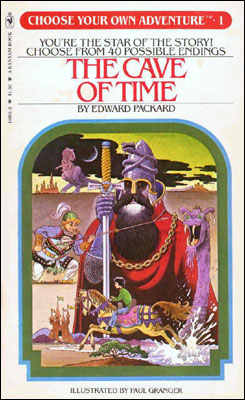
Choose Your Own Adventure is a series of children's gamebooks where each story is written from a second-person point of view, with the reader assuming the role of the protagonist and making choices that determine the main character's actions and the plot's outcome. The series was based upon a concept created by Edward Packard and originally published by Constance Cappel's and R. A. Montgomery's Vermont Crossroads Press as the "Adventures of You" series, starting with Packard's Sugarcane Island in 1976.
A gamebook is a work of printed fiction that allows the reader to participate in the story by making choices. The narrative branches along various paths, typically through the use of numbered paragraphs or pages. Each narrative typically does not follow paragraphs in a linear or ordered fashion. Gamebooks are sometimes called choose your own adventure books or CYOA after the influential Choose Your Own Adventure series originally published by US company Bantam Books. Gamebooks influenced hypertext fiction.

The Battle of Westerplatte was the first battle of the German invasion of Poland, marking the start of World War II in Europe. It occurred on the Westerplatte peninsula in the harbour of the Free City of Danzig.

Tadeusz Różewicz was a Polish poet, playwright, writer, and translator. Różewicz was in the first generation of Polish writers born after Poland regained its independence in 1918, following the century of foreign partitions. He was born in Radomsko, near Łódź, in 1921. He first published his poetry in 1938. During World War II, he served in the Polish underground Home Army. His elder brother, Janusz, also a poet, was executed by the Gestapo in 1944 for serving in the Polish resistance movement. His younger brother, Stanisław, became a noted film director and screenwriter.

Jerzy Pilch was a Polish writer, columnist, and journalist. Critics have compared Pilch's style to Witold Gombrowicz, Milan Kundera, or Bohumil Hrabal.

Anthea Bell was an English translator of literary works, including children's literature, from French, German and Danish. These include The Castle by Franz Kafka, Austerlitz by W. G. Sebald, the Inkworld trilogy by Cornelia Funke and the French Asterix comics with co-translator Derek Hockridge.
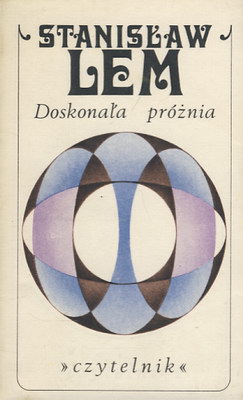
A Perfect Vacuum is a 1971 book by Polish author Stanisław Lem, the largest and best known collection of Stanisław Lem's fictitious criticism of nonexisting books. It was translated into English by Michael Kandel. Some of the reviews remind the reader of drafts of his science fiction novels, some read like philosophical pieces across scientific topics, from cosmology to the pervasiveness of computers, finally others satirize and parody everything from the nouveau roman to pornography, Ulysses, authorless writing, and Dostoevsky.
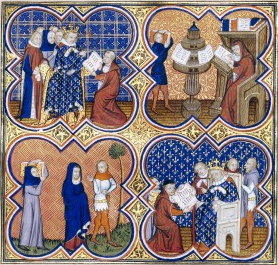
Translation is the communication of the meaning of a source-language text by means of an equivalent target-language text. The English language draws a terminological distinction between translating and interpreting ; under this distinction, translation can begin only after the appearance of writing within a language community.
Liberature is literature in which the material form is considered an important part of the whole and essential to understanding the work.

Stanisław Lem's fictitious criticism of nonexistent books may be found in his following works: in three collections of faux reviews of fictional books: A Perfect Vacuum, Provocation, and Library of 21st Century translated as One Human Minute, and in Imaginary Magnitude, a collection of introductions to nonexistent books.

The Czytelnik Publishing House is a publishing company in Poland. It was established in 1944 behind the Soviet front line as the Spółdzielnia Wydawnicza "Czytelnik". As of now, it is the oldest post–World War II publisher in Poland. The word czytelnik means "reader" in Polish.
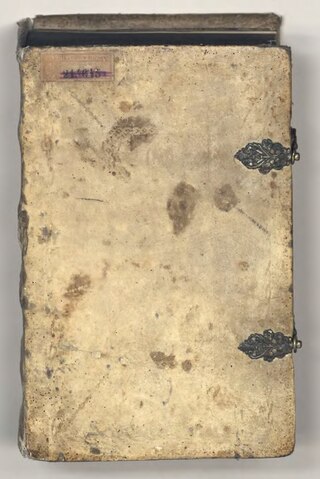
The Lives of the Saints from the Old and New Testaments is a hagiography by Polish Jesuit Piotr Skarga. It became one of the most popular Polish books ever and a classic of Polish literature. It is one of two most famous works by Skarga, the other being Sejm Sermons.

Marcin Szczygielski is a Polish writer, journalist and graphic designer. He is an author of theatrical plays, and novels for adults and teenagers. Since December 2012, he has been a member of Stowarzyszenie Pisarzy Polskich.

House of Day, House of Night is a novel by Olga Tokarczuk, published by Wydawnictwo Ruta in 1998.
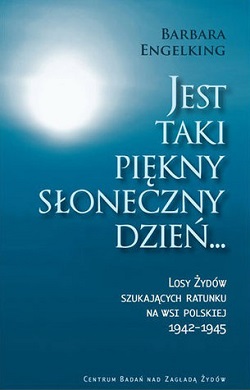
Such a Beautiful Sunny Day: Jews Seeking Refuge in the Polish Countryside, 1942–1945 is a 2016 book by Polish historian Barbara Engelking. It was first published in Polish in 2012 as Jest taki piękny, słoneczny dzień: Losy Żydów szukających ratunku na wsi polskiej 1942–1945. It focuses on the subject matter of The Holocaust in Poland.

The Books of Jacob is an epic historical novel by Olga Tokarczuk, published by Wydawnictwo Literackie in October 2014. It is Tokarczuk's ninth novel and is the product of extensive historical research, taking her seven years to write.















